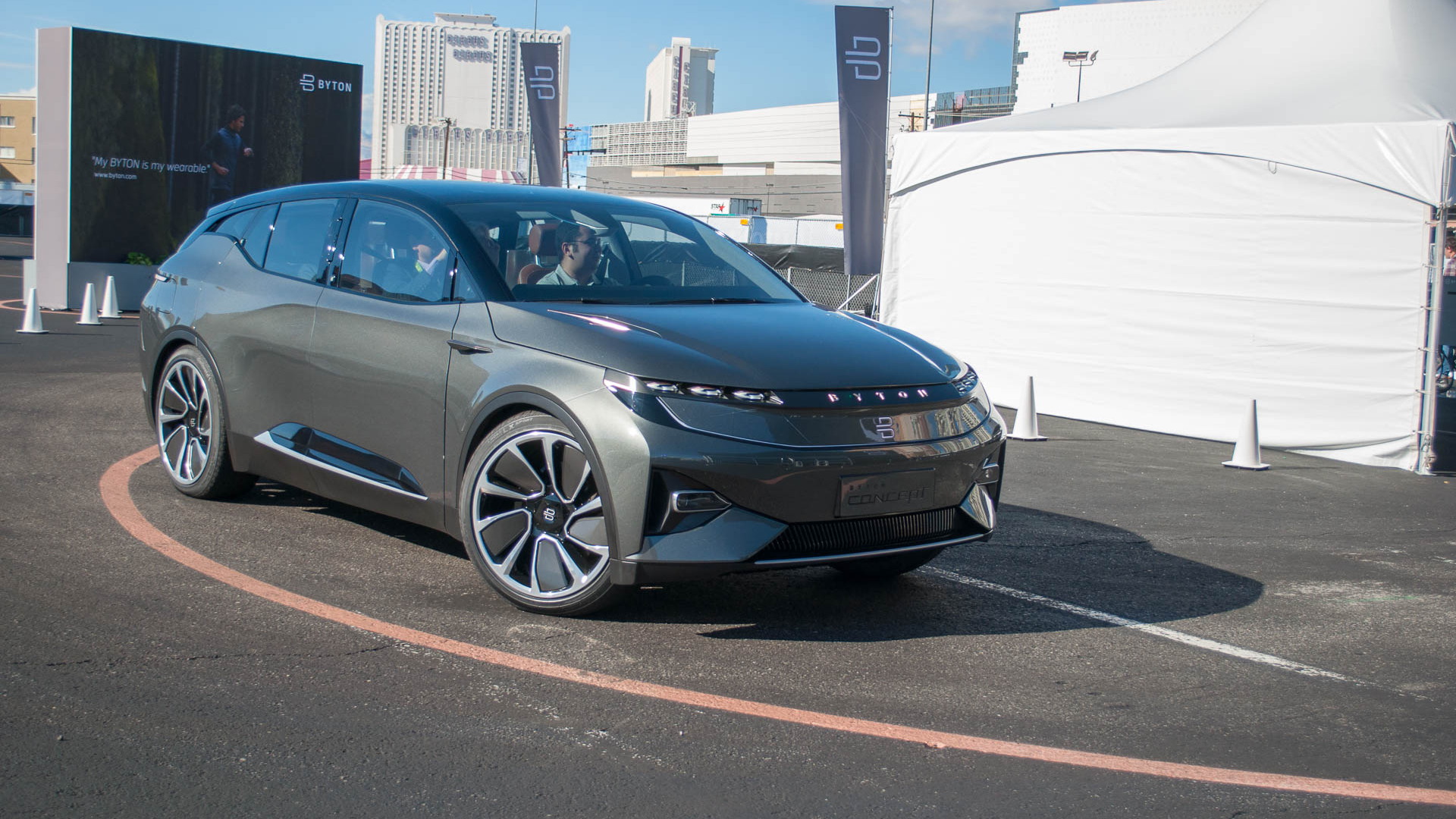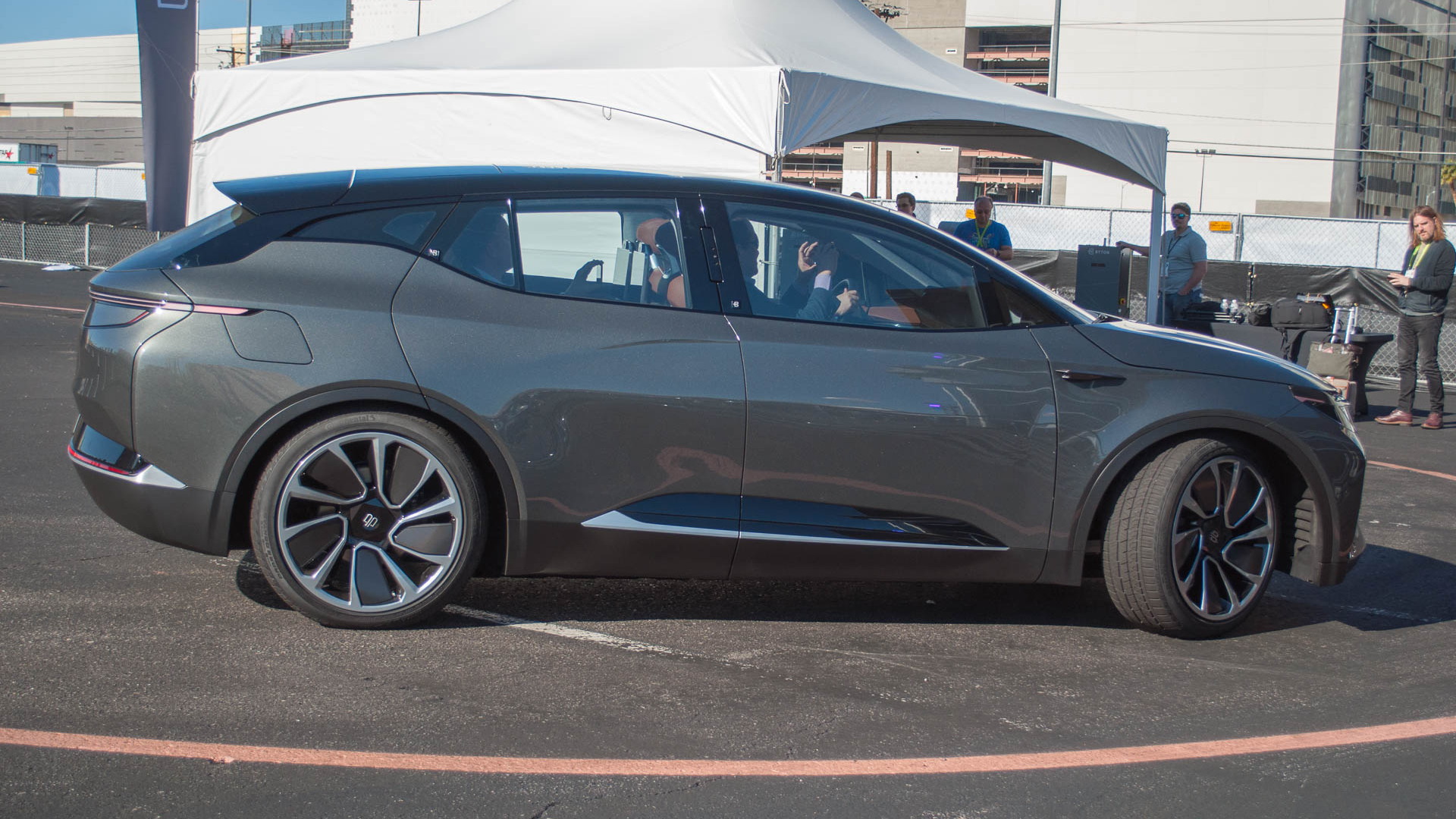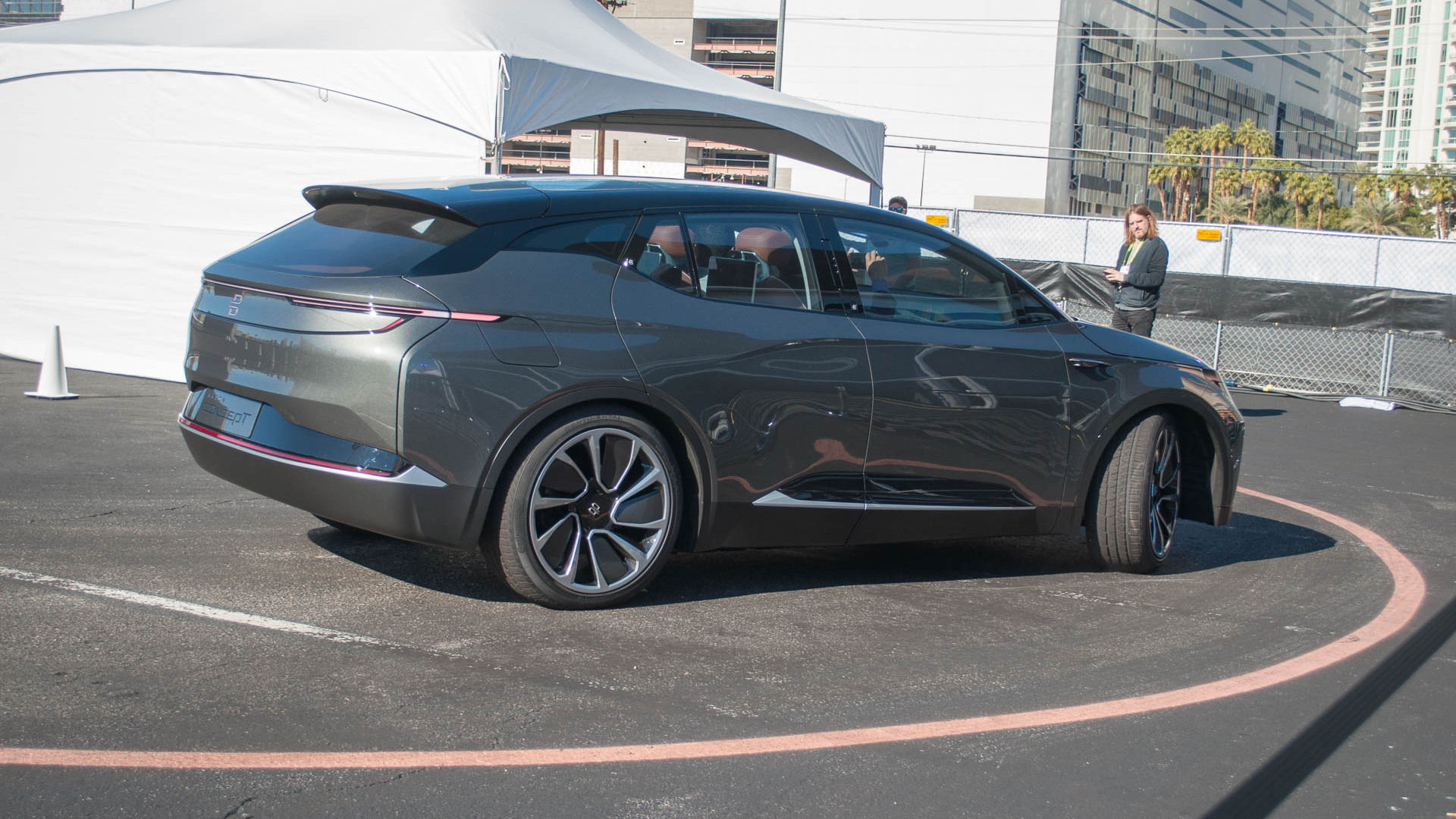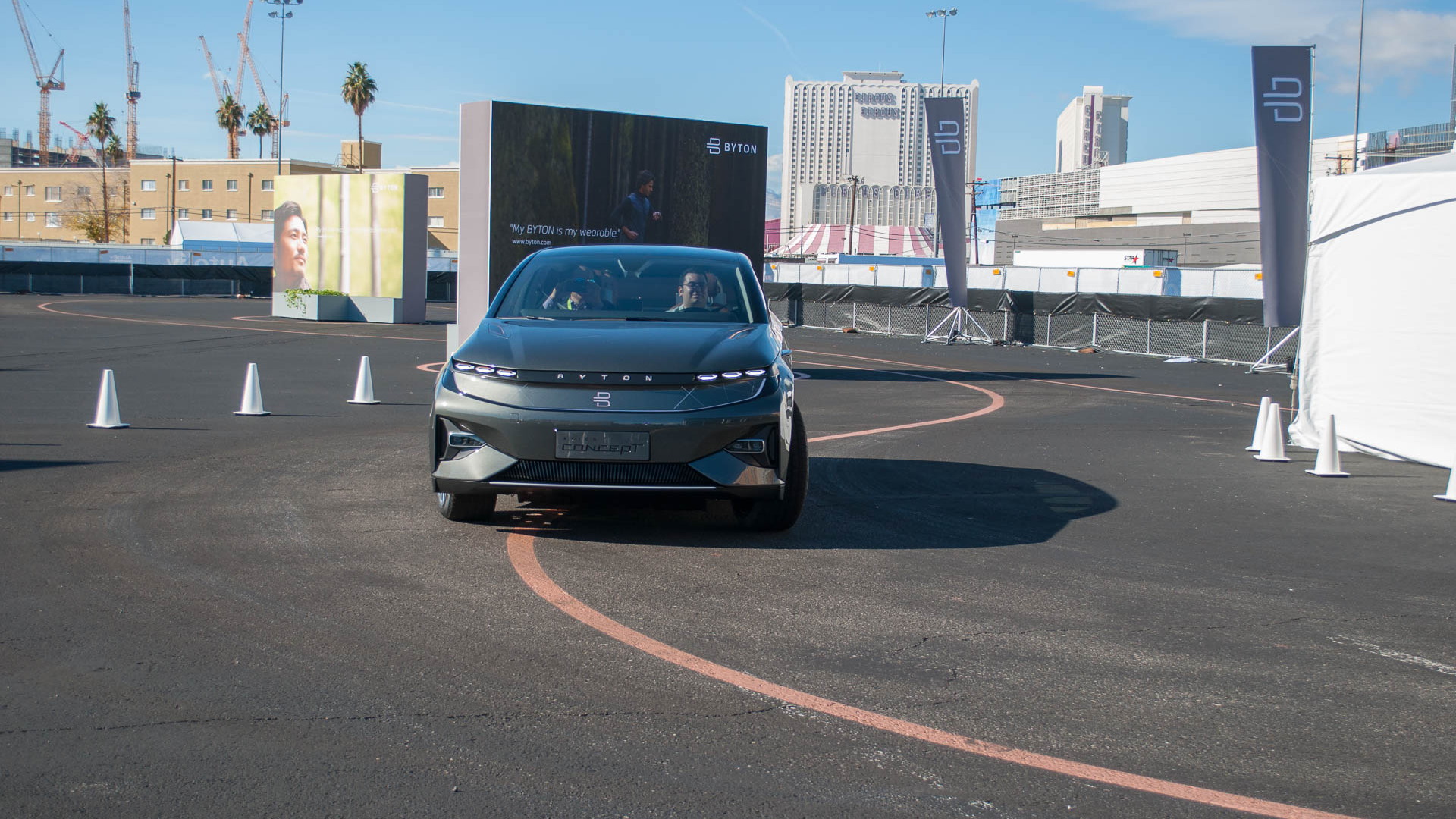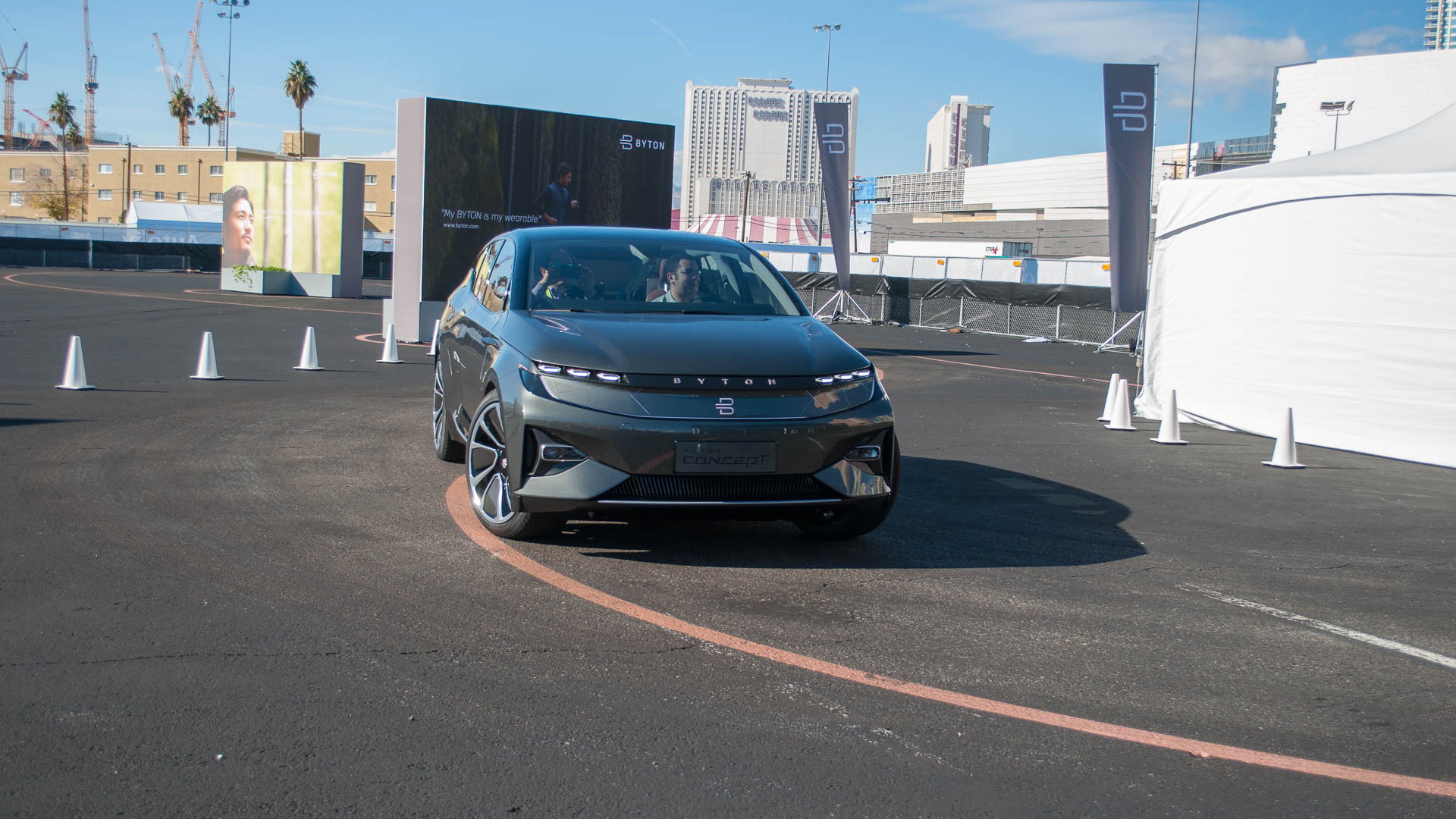Walk up to your Byton and an exterior camera knows your face. The door unlocks and you open it. The car boots up and it knows your name. It knows your health data, reads your blood pressure, checks your schedule, and streams whatever video was on your smartphone.
It even knows where you need to go next.
From the caramel-colored leather seats and warm leather dashboard, this Byton prototype projects the automaker's vision for the future; it's even called the "Byton life."
On Wednesday at the 2018 Consumer Electronics Show in Las Vegas I received a first-hand look at what this Chinese start-up views as the future of transportation.
I left wondering if the "Byton life" could be "real life." At least, as far as I know it to be.
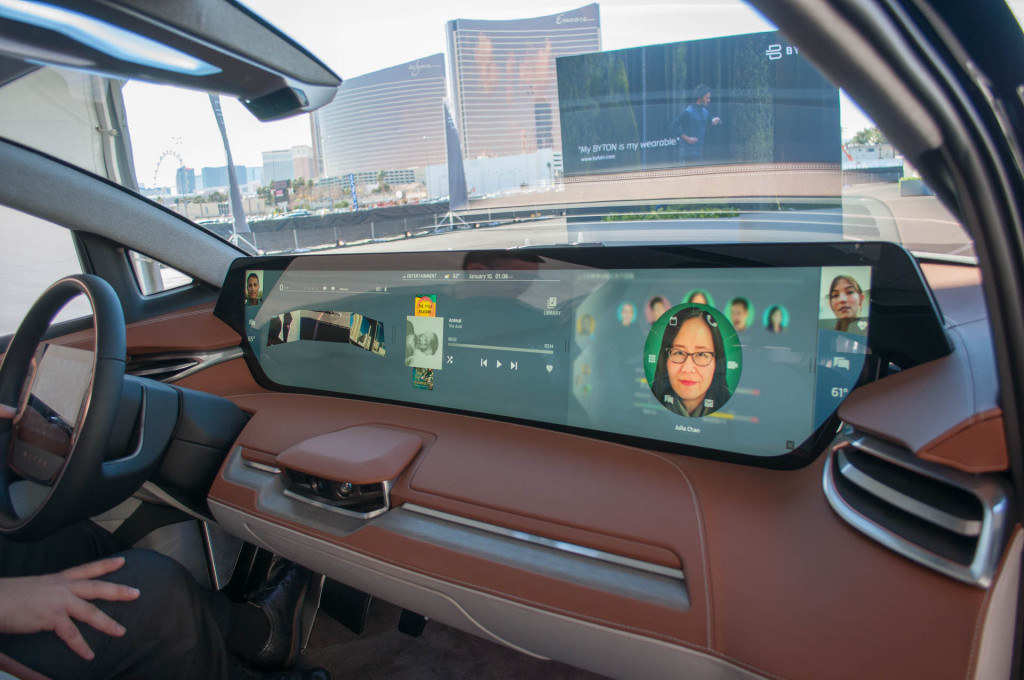
Byton concept first ride

Byton concept first ride

Byton concept first ride
Experiencing the actual car
Byton offered a hand-built model for test rides at CES, complete with a team of handlers to keep the fragile prototype from living a "rough life." The doors had to be gingerly opened and closed, the floor creaked as I moved my feet across it, and everything felt delicate. All electronics worked for demonstration purposes, including the 49-inch screen spanning the dashboard, the tablet-like screen mounted in the middle of the steering wheel, and the two monitors mounted to the back of the front seats. The climate control settings, swiveling front seats, and most other vehicle functions including selecting gears, were all controlled from its steering wheel-mounted screen.
Our friendly test driver ran through the vehicle's systems including the gesture controls for the 49-inch screen—no buttons or knobs to control it. It’s all gesture-controlled, along with how the Byton Life integrates with the vehicle’s systems (more on that later).
The prototype felt heavy, and reportedly the version I sat in was 30 to 50 percent heavier than a production model would be. Byton officials deflected our questions as to why it was so portly, only offering that it's “because it’s hand built.” Unless it’s made of lead, I'm not sure how it could possibly be that much heavier.
The 49-inch screen may seem like it's naturally distracting, but it's not. The glare on the screen is. It's hard to read what's on the screen when the sunlight hits it.
As we made our way around the test course, a bolt or nut flung itself around under the vehicle in what sounded like the battery casing or belly pan. Prototypes, we suppose.
In the production version, an airbag will supposedly be mounted below the tablet-like screen in the center of the steering wheel.
Aside from those concerns, the seats felt like trendy chairs we'd expect in a Scandinavian furniture store. They're thinly padded, but fashion is rarely comfortable too.
If this is the future, it feels like a trendy family room on wheels.

Byton concept first ride
Backing up to the basics
Byton is a Chinese startup looking to produce electric cars for the Chinese, US, and European market. It showed off its first vehicle, a crossover, in concept form on Sunday with a promised launch in 2019 with a starting price of about $45,000.
Byton’s headquarters are in Nanjing, China where a plant is being built to produce the vehicles in 2019.

Byton concept first ride
Nitty gritty
The Byton isn’t small. Its wheelbase is 116 inches long, which puts it between an E-Class and S-Class. Inside it’s 77 inches wide, which makes it about the width of an Audi A7. Call it a large, mid-size vehicle with crossover proportions.
The front and rear overhangs were designed around crash standards, not for the powertrain, according to Byton. One aerodynamic feature Byton was quick to tout is the buttress in the D-pillar for aerodynamics, a feature usually found on supercars. While trivial in the overall scheme of things, it is cool to see such a thing on a vehicle like this.
Two battery sizes will be offered. Base cars will have energy supplied by a 71-kilowatt-hour lithium-ion battery providing about 200 miles of range. Those wanting more range will be able to opt for a 95-kwh lithium-ion battery pack, which ups range to about 310 miles on a full charge.
How will you buy a Byton? The Chinese automaker isn’t ready to talk distribution or sales yet, but it plans on both private party sales and fleet sharing sales models.

Byton concept first ride
Things start getting murky
Everything so far seems reasonable in terms of the basics and nitty gritty, but dig deeper and things start seeming a little pie-in-the-sky.
Byton told us its vehicle should meet or beat vehicle crash standards in 2022, but we're not sure what those standards will be—they're still a few years out, after all.
Things get even weirder when it comes to charging times. The Chinese startup told Motor Authority its first vehicle will be compatible with all current standards such as SAE J1772, CCS1 combo, IEC standard, CCS2 combo, GBT for China, and the like. This is pretty standard, but where things get fishy is when they say the vehicle will be capable of charging 250 miles of range into its battery pack in 30 minutes on a CCS1 combo fast-charger. The issue is that may not be possible today.
John Voelcker, editor of Green Car Reports, breaks down the math on how that would be difficult: 4 miles of range from 1 kwh is ambitious, but possible. Current CCS charging stations offer 50 kw of flowing electrons. That means for 30 minutes of charging at a 50-kw station, you'd get 25-kwh, multiplied by 4 miles per kwh, and that figure lands around 100 miles. Europe offers 100-kw CCS charging stations that could roughly bump that range up to 200 miles for 30 minutes of charge, but what Byton is probably referring to is 150-kw CCS fast-chargers that just aren't here yet.
There's more.
Byton says its cars will be upgradeable—hardware, software, security, the whole thing. When asked how that would work, they couldn't answer that question.

Byton concept first ride
Byton Life
The entirety of the buying into Byton is what is being dubbed as "Byton Life."
You have a Byton ID that stores all your data, preferences—basically entire life—in the cloud. It downloads to any Byton vehicle you use, yours or a shared fleet car, and it knows where you need to be and your most recent blood pressure readings from your smartwatch.
Byton Life will even recognize if you’ve had a busy day and suggest you do a mediation session while your Byton drives you to your next destination.
This Byton ID connects with all your data, and while Byton said it’ll work on current 3G and 4G networks, it’s already planning for 5G for faster data speeds.
If this sounds like the future you were hoping for I have great news: There’s a Chinese startup looking to deliver it in 2019 in China, and 2020 in the U.S. and Europe.
The future is coming, but it’s still in very beta form today.
